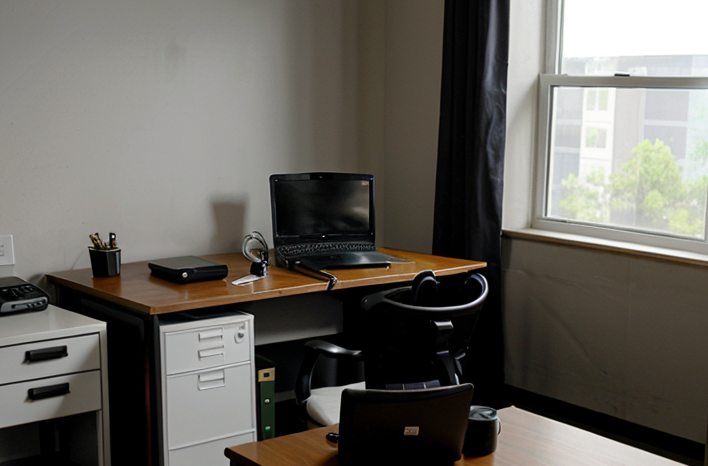Will HR Call To Reject You?
Her phone buzzed. It was just a text from a friend. She felt let down. Every time she heard a notification, her heart raced. She thought, “Is this it? Is this the moment?” This constant anxiety took a toll on her. Sleep became a distant memory, and her focus slipped. She would forget to eat or choose the wrong food.
Are You a Good Fit for This Job?
After an interview, waiting for a call can feel like forever. The mind races with questions. What did they think? Did I say something wrong? Julie, a recent college graduate, experienced this first hand. She had an interview last week. Each minute felt like an hour.
- Her morning coffee turned cold.
- Work tasks felt like climbing a mountain.
- She began avoiding her friends.
Job searching had turned into a mental battle. The empty silence from the company lingered heavy in the air. It felt like a dark cloud hanging over her head. Days turned into weeks, and still no updates. With each passing day, self-doubt grew. Friends tried to uplift her spirits. They said she was talented and would find success.
Yet, their words had little effect. Julie wrestled with her own thoughts. Why wasn’t she good enough? Then, one afternoon, she received a call. She thought it was from HR. But it was just an automated message. When she hung up, frustration bubbled inside her. With every tick of the clock, hope waned.
Changes in Julie’s routine were noticeable. She became quiet and withdrawn. Her usual laughter faded. It felt unfair to her. She craved updates to ease the turmoil. Julie began to realize that waiting had become a part of her life. What started as a hopeful journey turned into a waiting game. The emotional impact was immense.
It’s tough to be so close, yet feel miles away. Anxiety can cloud clarity. For many, it’s an all-too-familiar loop. They can tell a similar tale about their own interviews. What helps in these anxious moments? One option: reach out. It might not change the outcome. Yet, it can help ease the burden of waiting.
Understanding how to communicate effectively with HR is vital during this uncertain time. For more insights on the nuances of these conversations, check out our article on navigating HR discussions.
The Silence Speaks Volumes

After interviews, many candidates endure an ocean of silence. It brings doubt and anxiety. Why do HR departments remain quiet? Often they’re busy. They juggle many candidates. Some companies don’t prioritize feedback. This silence can leave candidates feeling forgotten.
Understandably, waiting can be frustrating. You check your phone anxiously. Hope can turn into despair quickly. Some firms communicate rejections swiftly. Others wait for days or weeks.
To better navigate the complexities of job interviews and the role of HR, consider learning more about the boundaries of HR communications.
- Quick rejections show respect. It indicates strong communication culture.
- Delayed responses might indicate disorganization. It reflects poorly on the company.
- Surprisingly, some do not inform candidates at all. This speaks volumes about company values.
Examples of communication vary greatly. Many tech startups try to keep candidates engaged. They send emails filled with updates. Conversely, larger corporations might ignore you altogether. They might send a generic email. It can feel cold and impersonal.
Some candidates receive personal calls. This can soften the blow of rejection. Others never hear back despite multiple interviews. What can candidates learn from this? Let’s break it down. Understanding company culture is critical.
If a company communicates openly, it welcomes a positive work atmosphere. A lack of communication can suggest dysfunction. Navigating the job market can be tough. Be mindful of your experience. Reflect on how a company treats you during this process.
Ultimately, the silence often hurts more than the rejection. It leaves candidates wondering about their worth. Good communication can turn a negative experience into a learning opportunity. In the end, remember: silence isn’t necessarily rejection.
What Happens Behind Closed Doors
Every HR department has its own methods. They look at resumes and applications first. Each candidate goes through a process. Evaluations start with basic screening. They ask questions like, “Does the person meet the job criteria?”
After the initial review, discussions among HR teams take place. They often meet to talk about candidates. The more they talk, the clearer the picture becomes. Some candidates shine brighter. However, some don’t shine as bright but still show promise.
The decision-making can be influenced by leadership. The hiring manager often gives their opinion. This can shape the direction of choices. Sometimes opinions clash among team members. Not every manager agrees on what is best.
- Common factors in hiring include:
- Experience and skills matter.
- Culture fit is also important for teams.
- References play a role in the evaluation.
- Interview performance can tip the scales.
As candidates, how can you improve your chances? Show your skills on your resume. Prepare for interviews by practicing common questions. Follow up after interviews to express your interest. Ask for feedback, even if rejected. Understanding what went wrong is key. This way, you can position yourself better in future.
Work From Anywhere Opportunities:
Researching the company helps too. Understand their values and what they need. Tailor your application to match those needs. Show enthusiasm during the interview. It makes a great impact.
Behind closed doors, candidates are often discussed at length. Questions are asked. Ideas are shared. In some cases, a hesitant candidate may get the nod. This is due to team discussions that consider all aspects.
When rejections happen, it’s not always personal. Many factors can influence outcomes. Timing can play a significant role too. Sometimes they may hire internally instead of looking outward.
At the end of the day, it’s a complex process. Each HR department has its unique quirks. Understanding their methods can help candidates navigate the system. Stay hopeful, and learn from each experience! Every rejection can lead to better opportunities ahead!
It was a sunny Tuesday afternoon. Sarah sat by her phone. She had been waiting for days. The job she wanted felt within reach. Her heart raced every time the phone rang. Suddenly, it beeped. A new message from HR. Would this be the news she prayed for? She held her breath.
But it wasn’t a message. It was a call. Her palms grew sweaty. She answered quickly. “Hello?” A calm voice came through. “Hi, this is Tom from HR.” The words hung heavy. Sarah’s stomach dropped. She knew.
“I want to talk about your application.” His tone was friendly. Yet, Sarah felt a chill. A tight knot formed in her throat. “We enjoyed speaking with you. However… we have chosen another candidate.”
Time seemed to freeze. Thoughts raced. Why didn’t she wear that red shirt? Or prepare better answers? Did she mumble? The blend of sadness and embarrassment swirled inside her. She forced a laugh. “Oh, okay. Thank you for letting me know.” Inside, she felt very different. Her dreams just crumbled.
Tom continued, offering words of encouragement. But they felt flat. “Keep applying,” he said. Each word felt like a tiny prick. Sarah felt heavy. “I will,” she managed to reply. But her heart didn’t mean it.
After the call ended, tears brimmed in her eyes. What now? She wanted to curl up and eat ice cream. Yet then, with a chuckle, she remembered mom’s advice: “Every rejection leads to something better.”
This made her think. She hadn’t given up yet. What about that project she wanted to start? Could she turn disappointment into fuel? With a deep breath, she opened her laptop.
- Revise her resume.
- Explore new job sites.
- Join a networking group.
Each task felt lighter. Hope sparkled like stars at night. Maybe this rejection was a blessing in disguise. With every move, she could rise again.
Learning from Rejections

Job rejections can sting. They can shake your confidence. Yet, it’s essential to see them as stepping stones. Every no has a lesson tucked inside. Reflect on your experience. Do not let a rejection define you.
Successful people often face setbacks. Take Sarah; she applied for many jobs. After several rejections, she paused to reflect. What did she learn? She revamped her resume.
- Seek feedback. If possible, ask why you were not chosen.
- Some employers may share valuable insights.
- Use this information to make your next application stronger.
- Practice answering interview questions differently.
Next, focus on your skills. What are your strengths? What can you improve? Identify areas of growth. Set realistic goals to enhance your skills.
Practice self-care after a rejection. Talk about it with a friend. Express your feelings. This can help you process emotions. While it hurts, know you are not alone.
Look at rejection as a chance to grow. Many great leaders faced rejection. They learned and bounced back. It’s key to have a positive mindset.
Consider this: every rejection opens another door. Keep applying until you find the right fit. Your persistence will pay off. This is how you build resilience.
In the past, Joe faced rejection multiple times. He felt despair. Yet, he chose to learn and adapt. Now he’s thriving in a job he loves. He says, “It was worth the struggle.”
Keep a journal of your journey. Write down what you learn. Reflect on your improvements. This helps track your growth and boosts confidence.
Finally, network with others. Sharing experiences can provide support. Friends may have tips. They might even know about opportunities. Don’t hesitate to reach out. Rejection can feel heavy. But the lessons can be light and uplifting. Each setback paves the way to progress. Embrace the journey ahead.
The Future Awaits
Job searching is a journey. Each step brings its own challenges and triumphs. When faced with rejection, remember it fosters resilience. Each setback can lead to growth. Self-belief is crucial. Trust your skills and never discount your worth.
Every job application is a chance to learn. Analyze feedback and adjust for the next time. Rejections are not failures. They are stepping stones toward success.
- Stay positive.
- Set new goals.
- Focus on improvement.
Opportunities are always around the corner. Keep seeking them with hope. Embrace the lessons learned. They shape your future and refine your approach. Imagine the possibilities to come. Your next job might be the perfect fit.
In conclusion, let rejection be a lesson. It can fuel your fire to strive harder. The journey is ongoing. Keep moving forward, and trust the process. Great things happen to those who wait. Be patient and stay determined.







